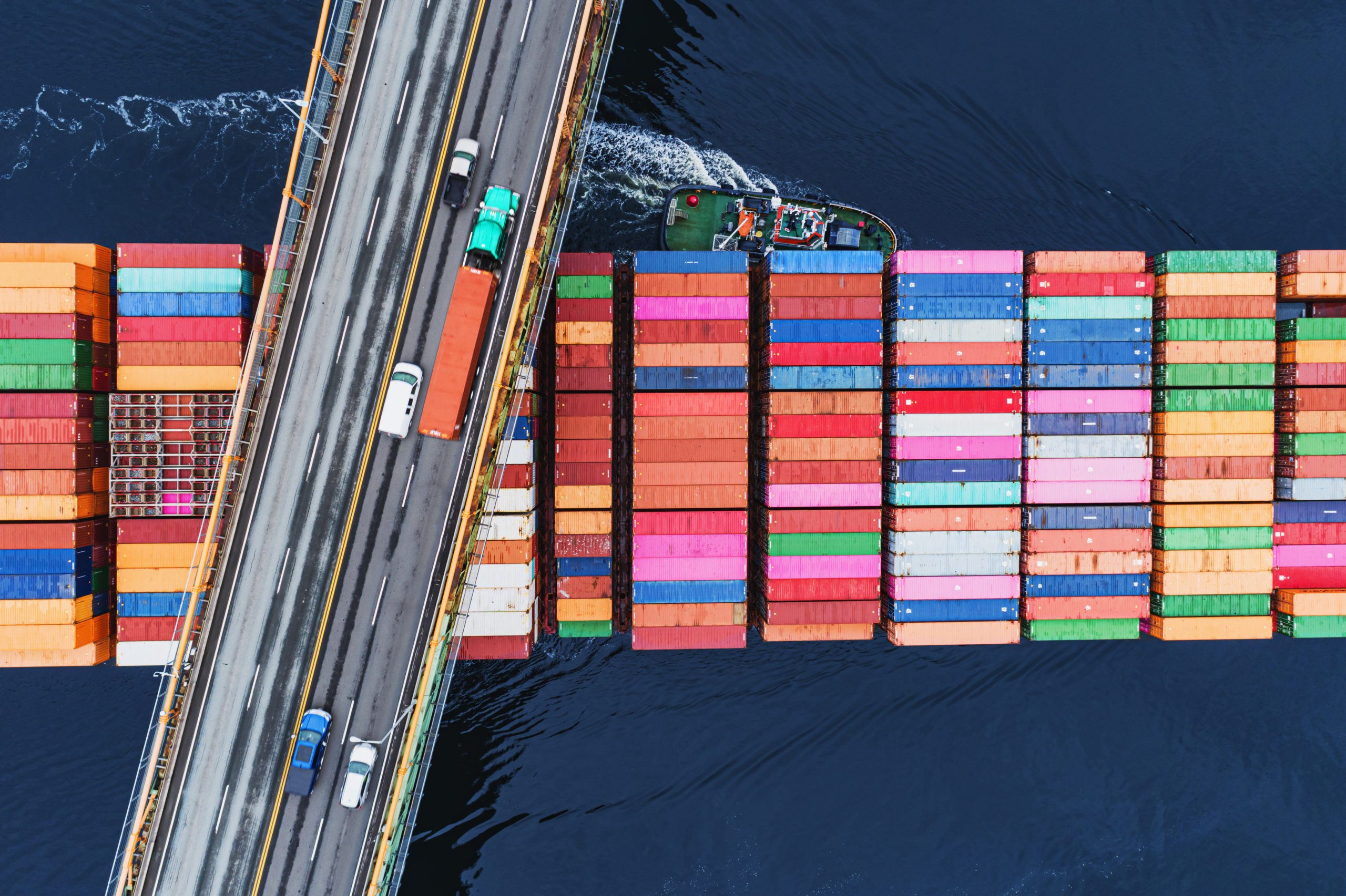Zencargo Market Update: 13th March
Mar 13, 2023
Scroll to find out more
Mar 13, 2023
Scroll to find out more

The relationship between shippers and carriers is complex. Everything from global economic trends and geopolitical machinations right down to routing options and a vessel’s fuel source can contribute to sway the power balance. In analysing this relationship over the past few years, it can be viewed as a sort of tug of war.
During the demand surge of the pandemic, the pulling strength of carriers was immense, fuelled by high consumer demand which filled capacity, carriers could command historic prices per TEU as shippers desperately tried to secure space. Oh how times have changed.
The firm ground which anchored the carrier’s position has now well and truly given way to a muddy quagmire as carriers, desperate to stem the rate erosion, dig their heels in with capacity management through blank sailings and ship scrapping. Further contributing to the slippery footing; a rise in fuel costs, a large industry orderbook of new vessels entering the market and new IMO regulations, the unknown impact of which looms on the horizon.
Meanwhile for shippers, abundant capacity, high inventory levels and low demand has positioned them on solid ground to pull the power balance in their favour. In real terms what does this mean for the industry? Rates continue to fall, edging closer and closer to 2019 levels as carriers battle for market share in an emerging rate war, reflected in a steep decline of the global rate index.
Unlike an actual tug of war competition, there is no winner or loser, the relationship between shippers and carriers persists with only ebbs and flows in the bargaining power balance. And right now that ebb is firmly in the favour of shippers – In the most recent episode of our podcast we discussed how for many shippers, locking in at least a portion of cargo into a longer term contract is a very attractive option right now. Securing a level of service and stability to help maintain a weekly sailing or a banded transit time while utilising diversification options to protect against the reality of a market with high levels of blank sailings. Of course this is not intended as 1 size fits all advice and is wholly dependent upon your business and supply chain needs, however in the analogous game of tug of war, when carriers regain their footing and begin to pull back, for many shippers this could help them keep their footing.
Ocean
Air
Central China to USA and Europe
North China to USA and Europe
South China to USA and Europe
Ocean
Ocean
Ocean
Road
European Bank Holidays
We anticipate a shortage of availability and the occurrence of delays around the bank holiday periods. Plan ahead and allow extra time for your products to be delivered.
March 13 – Spain*
March 15 – Hungary
March 17 – Ireland (Eire)
March 19 – Austria*, Malta
March 20 – Spain*
March 25 – Cyprus, Greece
March 31 – Malta
April 1 – Cyprus, San Marino
April 6 – Andorra*, Denmark, Faroe Islands, Greenland (Kalaallit Nunaat), Iceland, Norway, Portugal*, Spain, Svalbard and Jan Mayen, Switzerland*
April 7 – Andorra, Austria*, Czech Republic, Denmark, Estonia, Faroe Islands, Finland, France*, Germany, Gibraltar, Greenland (Kalaallit Nunaat), Guernsey and Alderney, Hungary, Iceland, Ireland (Eire)*, Isle of Man, Jersey, Latvia, Liechtenstein*, Luxembourg*, Malta, Netherlands*, Norway, Portugal, Saint Helena, Slovakia, Spain, Svalbard and Jan Mayen, Sweden, Switzerland*, UK (United Kingdom), Åland (Ahvenanmaa)
April 8 – Andorra*, Sweden*
April 9 – Albania, Bosnia and Herzegovina (FBiH)*, Croatia, Denmark, Estonia, Faroe Islands, Finland, Germany*, Holy See (Vatican City), Iceland, Italy, Kosovo, Kosovo, Lithuania, Netherlands, Norway, Poland, Portugal, San Marino, Slovenia, Svalbard and Jan Mayen, Sweden, Åland (Ahvenanmaa)
April 10 – Albania, Andorra, Austria, Belgium, Bosnia and Herzegovina (FBiH)*, Croatia, Czech Republic, Denmark, Faroe Islands, Finland, France, Germany, Gibraltar, Greenland (Kalaallit Nunaat), Guernsey and Alderney, Holy See (Vatican City), Hungary, Iceland, Ireland (Eire), Isle of Man, Italy, Jersey, Kosovo, Latvia, Liechtenstein, Lithuania, Luxembourg, Malta*, Monaco, Netherlands, Norway, Poland, Saint Helena, San Marino, Slovakia, Slovenia, Spain*, Svalbard and Jan Mayen, Sweden, Switzerland*, UK (United Kingdom)*, Åland (Ahvenanmaa)
April 11 – Kosovo
April 14 – Bosnia and Herzegovina (FBiH)*, Bulgaria, Cyprus, Greece, Montenegro, Romania, Serbia
*Not in all regions
The information that is available in the Weekly Market Update comes from a variety of online sources, partners and our own teams. Click below to learn more about how Zencargo can help make your supply chain your competitive advantage.

In Focus: Potential ILA strikes in January 2025 The U.S. East Coast could see m...

In focus: U.S. election and supply chains Donald Trump's return to the White Ho...

In focus: Eyes on trade post U.S. election With Donald Trump returning to the W...